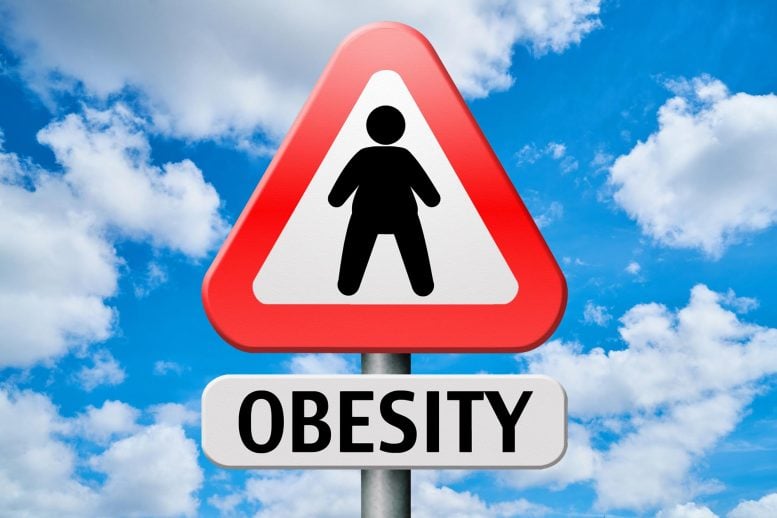
The new WHO European Regional Obesity Report 2022, to be published today (May 3, 2022) by the WHO Regional Office for Europe, reveals that overweight and obesity rates have reached epidemic proportions across the Region and are still expanding, with none of the 53 Member States of the Region currently on track to meet the WHO Global Noncommunicable Disease (NCD) target of halting the rise of obesity by 2025.
New Data on Obesity and Overweight
The report, which will be launched at a press event on May 3 and presented at this week’s European Congress on Obesity in Maastricht, Netherlands, reveals that in the European Region, 59% of adults and almost 1 in 3 children (29% of boys and 27% of girls) are overweight or living with obesity. Except for the Americas, obesity prevalence for adults in the European Region is higher than in any other WHO region.
Overweight and obesity are among the top causes of death and disability in the European Region, with current estimates indicating that they account for more than 1.2 million fatalities per year, accounting for more than 13 percent of overall mortality in the Region.
Obesity increases the risk for many non-communicable diseases, including cancers, cardiovascular diseases, type 2 diabetes mellitus, and chronic respiratory diseases. For example, obesity is considered a cause of at least 13 different types of cancer and is likely to be directly responsible for at least 200,000 new cancer cases annually across the Region, with this figure set to rise further in the coming years. Overweight and obesity are also the leading risk factor for disability, causing 7% of total years lived with disability in the Region.
Overweight people and those living with obesity have been disproportionately affected by the consequences of the COVID-19 pandemic. There have been unfavorable shifts in food consumption and physical activity patterns during the pandemic that will have effects on population health in the years ahead, and will need significant effort to reverse.

Obesity in Europe: An Ongoing “Epidemic”
To address the growing epidemic, the report recommends a suite of interventions and policy options that Member States can consider to prevent and tackle obesity in the Region, with an emphasis on building back better after the COVID-19 pandemic.
“Obesity knows no borders. In the Europe and Central Asia regions, no single country is going to meet the WHO Global NCD target of halting the rise of obesity,” said Dr. Hans Henri P. Kluge, WHO Regional Director for Europe. “The countries in our Region are incredibly diverse, but everyone is challenged to some degree. By creating environments that are more enabling, promoting investment and innovation in health, and developing strong and resilient health systems, we can change the trajectory of obesity in the Region.”
Obesity Is a Disease – Not Only a Risk Factor
Obesity is a complex disease that presents a risk to health. Its causes are much more complex than the mere combination of an unhealthy diet and physical inactivity. This report presents the latest evidence, highlighting how vulnerability to unhealthy body weight in early life can affect a person’s tendency to develop obesity.
Environmental factors unique to living in modern Europe’s highly digitalized societies are also drivers of obesity. The report explores, for example, how the digital marketing of unhealthy food products to children, and the proliferation of sedentary online gaming, contribute to the rising tide of overweight and obesity in the European Region. However, it also looks at how digital platforms might also provide opportunities for the promotion and discussion of health and well-being.
Policy Measures: What Can Countries Do?
Addressing obesity is critical to achieving the Sustainable Development Goals and is a priority echoed in WHO’s European Programme of Work 2020–2025.
The new WHO report outlines how policy interventions that target environmental and commercial determinants of poor diet at the entire population level are likely to be most effective at reversing the obesity epidemic, addressing dietary inequalities, and achieving environmentally sustainable food systems.
Obesity is complex, with multifaceted determinants and health consequences, which means that no single intervention can halt the rise of the growing epidemic.
Any national policies aiming to address the issues of overweight and obesity must have high-level political commitment behind them. They should also be comprehensive, reaching individuals across the life course and targeting inequalities. Efforts to prevent obesity need to consider the wider determinants of the disease, and policy options should move away from approaches that focus on individuals and address the structural drivers of obesity.
The WHO report highlights a few specific policies that show promise in reducing levels of obesity and overweight:
- the implementation of fiscal interventions (such as taxation on sugar-sweetened beverages or subsidies for healthy foods);
- restrictions on the marketing of unhealthy foods to children;
- improvement of access to obesity and overweight management services in primary health care, as part of universal health coverage;
- efforts to improve diet and physical activity across the life course, including preconception and pregnancy care, promotion of breastfeeding, school-based interventions, and interventions to create environments that improve the accessibility and affordability of healthy foods and opportunities for physical activity.
WHO Regional European Obesity Report 2022
Never miss a breakthrough: Join the SciTechDaily newsletter.
1 Comment
“Obesity is complex, with multifaceted determinants and health consequences, which means that no single intervention can halt the rise of the growing epidemic.”
yes, but it is also so incredibly simple that everybody knows how not to get obese: Don’t eat all that junkfood and cut the sugar down to a minimum.